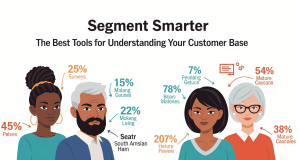In today’s fast-paced business environment, companies are constantly seeking ways to maximize their return on investment (ROI). One of the most effective strategies to achieve this is by integrating Customer Relationship Management (CRM) systems with other business systems. This integration not only streamlines operations but also provides significant advantages that can enhance overall performance and profitability. Here, we explore the key benefits of integrating CRM with your business systems.
1. Enhanced Data Accuracy and Consistency
Integrating CRM with other business systems, such as accounting, marketing, and inventory management, ensures that data is synchronized across platforms. This consistency reduces errors that can occur when handling multiple data entry points, thereby increasing data accuracy. Reliable data is crucial for making informed decisions, as it allows businesses to analyze customer behavior, track sales trends, and forecast future performance more effectively.
2. Improved Customer Insights
A well-integrated CRM system provides a 360-degree view of customer interactions across all touchpoints. By merging data from various business systems, companies can gain deeper insights into customer preferences, behaviors, and purchase history. These insights empower businesses to tailor their marketing efforts, enhance customer service, and foster better relationships with clients. Ultimately, this leads to increased customer loyalty and higher sales conversions.
3. Streamlined Processes and Increased Efficiency
Integrating CRM with other business systems automates many manual processes, such as data entry and report generation. This streamlining leads to significant time savings for employees, allowing them to focus on more strategic tasks rather than administrative duties. Improved efficiency not only enhances productivity but also enables faster response times to customer inquiries, thus improving overall customer satisfaction.
4. Better Collaboration Among Teams
When different departments—such as sales, marketing, and customer service—access a unified CRM system, collaboration becomes seamless. Integrating CRM fosters better communication and information-sharing across teams, ensuring everyone is aligned with the business’s objectives and strategies. This collaborative environment enables teams to work together effectively, resolve issues quickly, and provide a cohesive experience for the customer.
5. Enhanced Reporting and Analytics
With integrated CRM solutions, businesses can harness the power of advanced analytics to generate insightful reports. By pulling data from multiple sources, these reports provide actionable insights that can guide strategic decisions. Companies can track KPIs in real-time, identify trends, and make data-driven decisions. This level of analysis is crucial for businesses looking to optimize their strategies and achieve a higher ROI.
6. Increased Scalability and Flexibility
As businesses grow, so do their needs. An integrated CRM system can easily adapt to changes, whether that involves adding new users, integrating additional applications, or scaling functionalities. This flexibility ensures that businesses can continue to operate efficiently without having to overhaul their systems at every stage of growth.
7. Cost Savings
Though there may be an initial investment required for CRM integration, the long-term cost savings far outweigh these upfront costs. Automating processes, reducing errors, and improving efficiency can lead to lower operational costs. Moreover, enhanced customer retention and acquisition can significantly boost revenue, further amplifying ROI.
Conclusion
Integrating CRM with your business systems is not just a technological upgrade; it’s a strategic move that can yield significant returns. From enhancing data accuracy and customer insights to improving interdepartmental collaboration and efficiency, the benefits are vast and impactful. In an era where customer experience is paramount, leveraging an integrated CRM system can be the key to maintaining a competitive edge and driving profitability.
Investing in CRM integration is a proactive step for businesses aiming to maximize their ROI and future-proof their operations in a digitally-driven marketplace. By taking this essential step, your business can unlock new potential and thrive in the evolving landscape of customer relationships.









